
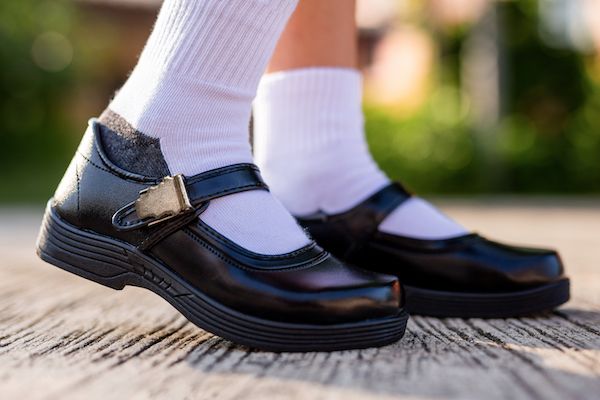
With a new scorecard showing Guernsey's children and young people are not achieving high levels of activity, the States have reiterated active travel is a priority for our government.
The new Executive Headteacher for the island's new secondary school system said it is being worked into her plans for introducing the one school/two sites model.
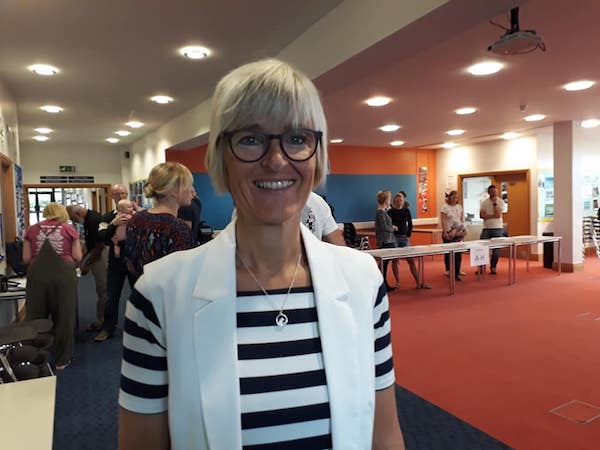
Pictured: Liz Coffey.
“Whilst developing the plans for the new school model, we will be working closely with both the Committee for the Environment & Infrastructure and the Health Improvement Commission to ensure that we encourage our young people to be active regularly. The health and wellbeing of both staff and the students is very important and will continue to be a key consideration when finalising the elements of our new school model” said Mrs Coffey.
Mrs Coffey was responding to the release of the ‘Active Healthy Kids Report Cards’ from across the globe, which proved that there are low levels of activity among young people in countries across the world.
ESC said "travelling actively to school is a priority for many countries, not just for the Bailiwick. It is a simple, regular and effective opportunity to help young people be active regularly."
In May 2014, the States approved the Integrated Transport Strategy which is now being implemented by the Committee for the Environment & Infrastructure and which includes the development of Travel Plans for all schools as well as safe walking and cycling routes.
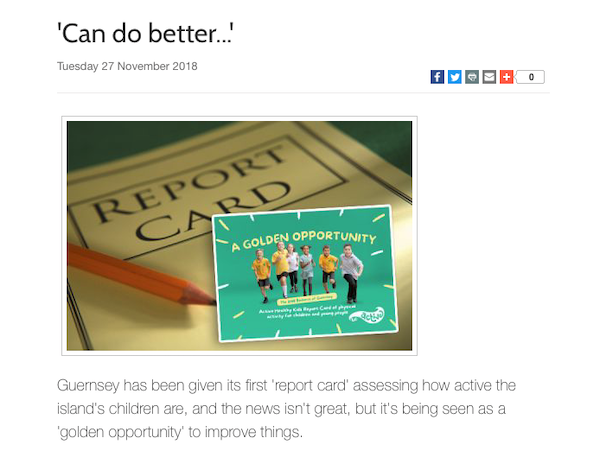
The evidence for different countries grades were based on pupil surveys and other data gathering exercises. Guernsey's information was gathered in 2016 through the Young People's Survey. The global results are focused on nine different indicators depending on the local data available.
A would mean between an 81 and 100% success rate with a large majority of children and youth being active, while F means 0-20% hit the required targets and Inconclusive means there wasn't enough data collected to ascertain activity levels.
With marks between D and C+, Guernsey's grades were pretty average compared to elsewhere in the world, meaning Guernsey's school children are not less active overall when compared to many other jurisdictions.
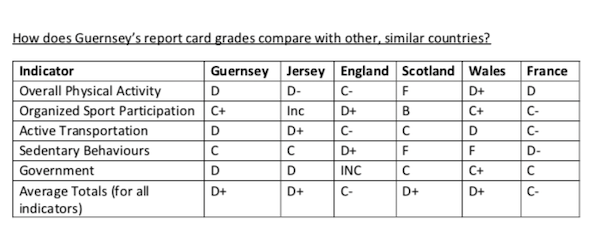
Pictured: Overall activity levels were graded for the British Isles and other places.
The report card is based on a "harmonised and standardised process," with 49 separate countries using the initiative.
The Report Cards track children’s activity nationally and are then used to inform the different nations about any practices, education and planning that may help to improve the longer-term health of their communities.
All of the Report Cards launched this week as part of the Global Matrix 3.0 at the ‘Movement to Move’ conference being held in Adelaide, Australia this week. You can read more on it here.
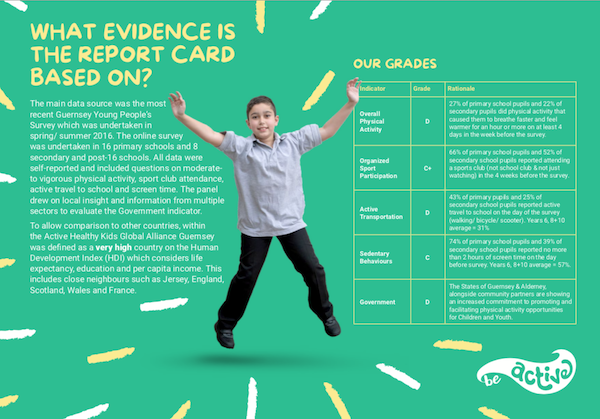
Pictured: Guernsey's report card used evidence gathered from pupil surveys.
Alun Williams, the Lifelong Learning Manager and Education Lead for the Health Improvement Commission who chaired the panel that established the Report Card, said he wasn't surprised by Guernsey's results, which prove inactivity is a global issue affecting young people.
“The scorecard demonstrates that Guernsey’s young people are not immune to global trends towards low levels of physical activity and high levels of sedentary behaviour. Guernsey is similar to other highly developed countries in recording a small proportion of Guernsey Children and youth accumulating the recommended amount of moderate-to vigorous intensity physical activity on a daily basis. Equally the levels of sedentary behaviour are of concern especially amongst older children. Few young people (especially of secondary School age) undertake active transportation to and from School."

Pictured: The way the grades are assigned.
Mr Williams said Guernsey didn't do badly when compared to other jurisdictions and the project has also given the island's key workers lots to focus on going forward.
“Guernsey’s report card is broadly in line with countries defined as a very high country on the Human Development Index (HDI) which considers life expectancy, education and per capita income. This includes close neighbours such as Jersey, England, Scotland, Wales and France.
“So, for example, the average overall physical activity indicator was D- for very high HDI countries whilst the Guernsey average was D. Similarly the average for sedentary behaviour was D+ whilst the Guernsey average was C.
“Yet, islands like Guernsey have a golden opportunity to develop a coordinated and collaborative community response to increasing young people’s physical activity.Since the data reported here were collected in 2016, the panel believes that there has been a positive shift in attitudes towards supporting young people to be more physically active. There has been recent promising evidence of government commitment to support a community response and ensuring that this remains apriority and that child and youth physical activity becomes ‘everyone’s business’ will be key to its success.”
Pictured top: Guernsey's report card saw the island score between C and D for activity levels among young people.
Comments
Comments on this story express the views of the commentator only, not Bailiwick Publishing. We are unable to guarantee the accuracy of any of those comments.